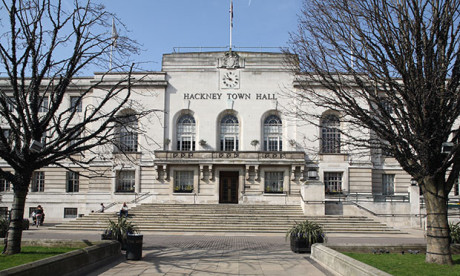Council tax could rise 4 per cent each year as Town Hall stares down £30m budget gap

Hackney Council’s medium-term financial plans are based on a 4 per cent rise increase in council tax in each year through to 2022/23, according to budget documents.
The local authority announced that this year’s planned tax rise of 4.99 per cent – which will raise £3.8m for Town Hall services at a cost of 92p a week to the average taxpayer – represents just 13 per cent of what it needs to save by 2022 in order to balance the books.
Hackney Mayor Philip Glanville has made clear that no final decisions have been taken on the coming years’ rates, as future government rules for how much councils have over setting their own levels are as yet unknown.
Glanville said: “The only decision we’re making is this year’s 4.99 per cent. We have put 4 per cent as a figure into the planning assumptions as an average, but that would be democratically taken in future years.
“We said in our manifesto we’d keep council tax as low as possible whilst preserving frontline services, and I would say a rise of 4.99 per cent does both.
“It is a prudent rise given what we do not know about where local government funding will be, but I don’t think you can solve the problems of local government finance through council tax alone.”
A tax rise over what the Town Hall currently have planned would require a referendum.
Anything over 2.99 per cent to fund services would need the council to put the rise to a vote, and according to central government rules accompanying 2 per cent rises to fund social care cannot exceed a 6 per cent raise in total over the last three years.
Glanville added: “I can’t see that [the rate] would be going much above where we are now with where inflation and the cost of living is.
“I think it’s very challenging for residents, and even has an impact even on those we are protecting through the council tax support scheme.”
The Town Hall’s medium-term plan includes efforts to improve its collection rate by 1 per cent by 2020/21, which could save it £1.2m, and to better identify those residents who are wrongly claiming the single person discount.
Part of the council’s strategy is to keep to a minimum its calls on the taxpayer by driving more of its own ‘efficiencies’ inhouse, as well as looking for other income strategies that rely on reducing its reliance on eroding grant funding from central government.
Other political voices in the borough argue that the decision to up the rates should have come sooner.
Darren Martin, vice chair of Hackney Liberal Democrats, said: “The financial constraints Hackney are experiencing due to central government cuts are not going to get any easier over the coming years, especially as both the Tory and Labour parties seem hell bent on pushing us into Brexit that will be a disaster for the economy.
“However, the size of the proposed increases in Hackney are caused in part by the Labour-run council under Mayor Jules Pipe freezing council tax for so many years for political gain instead of increasing by sensible increments when the borough really needed it.”
Martin also made calls for the council’s council tax support scheme, controversially cut by the council last year, to receive adequate funding, as well as the greater promotion of hardship schemes for residents.
Samir Jeraj, co-ordinator of Hackney Green Party, added:
“The government needs to end its destructive austerity policies and give local government freedom to help people.”
One member of Hackney’s Conservative group of councillors called for a different approach, supporting the abolition of the rate in its entirety.
Cllr Aron Klein (Con, Stamford Hill West), said: “I remember Margaret Thatcher introduced the poll tax. We pay too much indirect tax.
“With everything we buy and use already, this should pay enough for our public services. Scrap and delete council tax altogether.”
